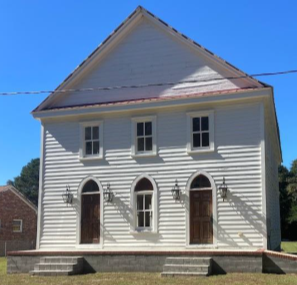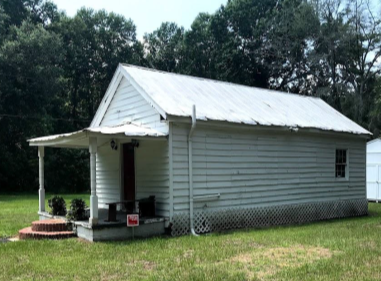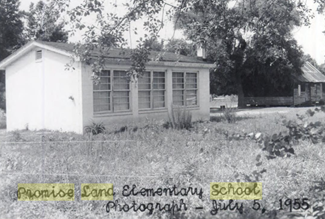- Home
- Field Work
- Johns Island Field School
Johns Island Community Field School:
Documenting the Built Environment
of a Gullah Geechee Community

The field school has a website of detailed information and registration details will be available here.
Our field school will focus upon researching and documenting public buildings and their role within the twentieth-century history of John’s Island - particularly the Jim Crow and Civil Rights periods. Over the course of two field seasons, participants will work on four buildings - Moving Star Hall (ca. 1917), one of the few remaining examples of Praise Houses left in the Lowcountry

Recognizing that historic preservation and public history have often failed to invest in the recruitment and preparation of first-generation students and/or ethno-racially diverse scholars and practitioners, our field school will offer stipends and zero-cost tuition to make the experience more financially accessible, and our team will strive to employ culturally-responsive pedagogical approaches. We will also focus our recruiting efforts on attracting participants with cultural/historical connections to the Gullah Geechee Cultural Heritage Corridor (GGCHC), as well as adult residents of Johns Island and adjacent communities within the GGCHC. Residents will also be invited and compensated to participate in one-day workshops with topics including building documentation, preservation advocacy, and preservation/heritage careers.; the Progressive Club (1963), which served as the site for a Civil-Rights period Citizenship School and community center; Hebron Presbyterian Church (1865), built by the local African-American community at the end of the Civil War; and Promise Land Elementary School, where prominent Civil Rights figure Septima Clark taught Esau Jenkins during Jim Crow. In addition to university-affiliated faculty providing hands-on training in historic preservation documentation and research methods (archival research, measured drawing, photography, laser scanning, photogrammetry, and GIS), the field school will include community members as key educators to address the local history of the Johns Island community and the evolution of the local cultural and historic landscape. The field school will also provide community partners with important information that will be used for managing these important buildings, seeking additional funding for preservation, and advocating for government policy changes aimed at mitigating threats to their tangible and intangible heritage.

The field school will be hosted through a partnership among the Clemson University and College of Charleston graduate program in historic preservation (MSHP), the Avery Research Center for African American History and Culture (ARC) at the College of Charleston (CofC), the Progressive Club (PC), and the Gullah Geechee Cultural Heritage Corridor Commission (GGCHCC). The field school leadership team includes: Dr. Jon Marcoux (Director and Associate Professor, MSHP), Amalia Leifeste (Associate Professor, MSHP), Dr. Tamara Butler (Executive Director, ARC, Associate Dean of Strategic Planning & Community Engagement, CofC), Abe Jenkins, Jr. (Board Member, PC), and Victoria Smalls (Executive Director, GGCHCC).